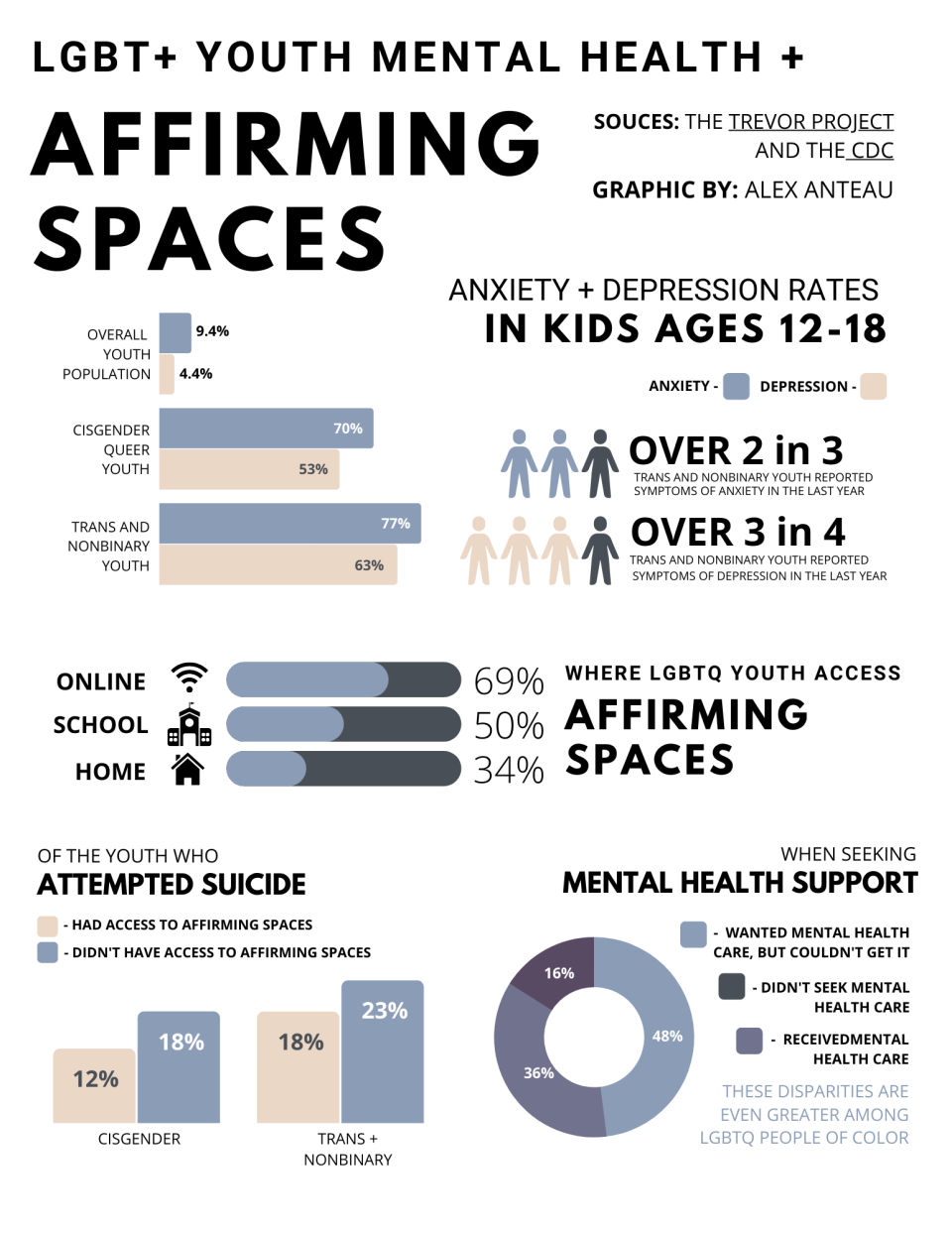'Fighting to protect our kids': Laws targeting LGBTQ youth concern Athens teachers
When Thea Canby and Nicole Gustafson opened a school together, they wanted to create the kind of learning environment they needed but never had.
In January 2022, the duo founded Our Resilient Community, a combination learning space for homeschooled children and queer community center.

As a space run by LGBTQ educators for LGBTQ students, many of their class topics center around LGBTQ studies. Queer issues, in particular, came into sharp focus during Georgia’s spring legislative session with the introduction of Senate Bill 435, a bill intended to ban transgender girls from participating in sports teams that match their gender identity.
More: Georgia’s Methodists face growing divide over tradition, LGBT inclusion
More: CCSD responds to 'incident involving a student's artwork' following community reaction
In response, Canby and Gustafson’s students wrote speeches and the class took a trip to the state Capitol in Atlanta when the students wanted to protest. The bill then got stuck in committee. They thought that was the end of the story.
“I told the kids: ‘This is the last day, the committee hasn't heard it,’” Canby said. “We thought we didn't have to worry about this bill.”
But the provisions of Senate Bill 435 were added to another bill, House Bill 1084, and passed shortly before midnight on the last day of the legislative session without a hearing.
'They need to know they have a place in the world'
According to data collected by the Trevor Project, an LGBTQ youth crisis hotline and advocacy group, LGBTQ kids already report high rates of depression and anxiety. Katie Leikam, a therapist who specializes in working with LGBTQ children, said that learning they are the center of a national debate doesn't make things easier.
“I have ... worked with children who know their identity is contentious to others and I see it making them sad and retreat,” Leikam wrote in an email.
The Williams Institute at the University of Southern California Law School reported that based on responses to the 2015 U.S. Transgender Survey, people who were denied equal treatment in public spaces because they were transgender were twice as likely to have attempted suicide in the last year, compared to those who hadn’t.
“Singling out LGBTQ kids sends further messages to them that they are different and undeserving of recognition of their personhood, which, we know, is completely false,” Leikam wrote. “Kids need to feel wanted and during their developmental years. …They need to know they have a place in the world.”
'It just pops up out of nowhere'
According to Canby and Gustafson, you can’t talk about Senate Bill 435 without mentioning Senate Bill 613, Georgia’s version of Florida’s “Don’t Say Gay” bill.
While Florida’s bill banned the discussion of sexual orientation and gender identity from kindergarten to third grade, Georgia’s proposed legislation wanted to eliminate these topics of conversation from private elementary schools.
Though the bill was introduced in March, too late in the legislative session to have a chance at passing, it still set off alarm bells for teachers, students and health professionals.
In Leikam's experience, by the time children reach upper-level elementary school, they start to recognize that they are part of the LGBTQ community.
“If people are silenced from talking about [this], it's not going to suddenly make people not be gay or transgender later in life,” Leikam wrote. “It will make people feel ashamed or different and that feeling of difference. …will affect a child's mental health, not just later in life, but right now.”
While legislation that’s introduced toward the end of a session isn't usually passed in the form it was introduced, according to Anthony Kreis, a constitutional law professor at Georgia State University, it’s not unheard of for pieces of a bill to get copied and spliced into pre-existing legislation.
“It just kind of pops up out of nowhere, and then winds up getting passed,” Kreis said.
This is precisely what happened with House Bill 1084.

'Knowing he's totally safe is such a vital thing'
In addition to creating an environment where LGBTQ kids don’t have access to the same resources and treatment as their cisgender, heterosexual counterparts, legislation targeting this population runs the risk of eliminating a vital support network.
In the past year, 50% of children surveyed by the Trevor Project cited school as the place they were able to access LGBTQ affirming spaces. The ability to access affirming environments, including schools, resulted in lower rates of suicide.
Gee Stickney, a transgender eighth-grade English teacher at Burney-Harris-Lyons Middle School, sees providing a supportive environment for students as an important part of their job.
“We have our first out trans student and [administration] purposefully put him in my class,” Stickney said. “When kids are picking on him, or if he's feeling really down, having people in the building that he can go to, [knowing] he's totally safe is such a vital thing.”
'Live with it or litigate'
“I feel like in other places … teachers are having conversations with students about these positive things, like, ‘Yeah, the government is here to help you and work for you,’” Gustafson said. “And we don't get to tell that to our kids.”
However, Kreis said that just because a piece of legislation passes, it doesn’t mean it’s set in stone. There will likely be challenges to these bills in federal court, but that doesn’t eliminate concerns about these laws passing to begin with.
“Either you live with it, or you litigate,” Kreis said. “For the most part, it’s about the political process and people being engaged with it.”
In the meantime, educators worry about what the future holds for the queer children they’re mentoring.
“We're fighting to protect our kids,” Canby said.
Stickney agreed: “I don’t ever want to see [my students] have to go through the same sort of fear that I did.”
This article originally appeared on Athens Banner-Herald: Impacts of LGBTQ youth-targeted legislation concern Athens teachers

